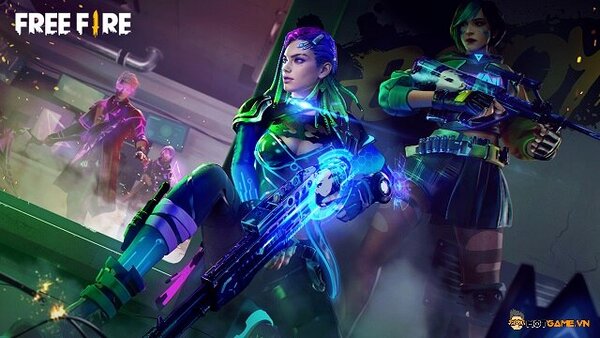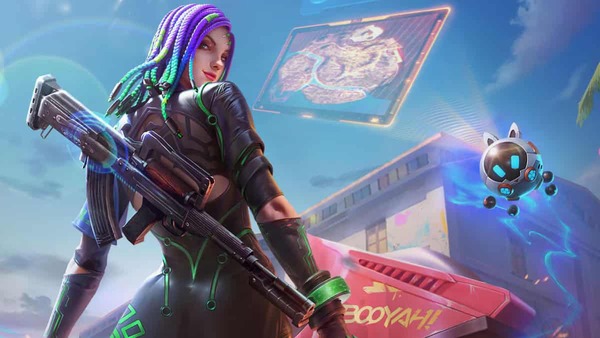Free Fire’s fast-paced, action-packed matches are one of its most appealing features. However, one of the most persistent issues that players face is the game’s matchmaking system. This system, responsible for pairing players in matches, often creates unbalanced games that can frustrate newcomers and veterans alike. In this article, we will explore the complexities of Free Fire’s matchmaking system, its impact on the player experience, and suggestions for improvement to ensure fair and competitive gameplay.

Free Fire pairs players into a match based on certain criteria, such as rank, skill level, or region
Introduction to Matchmaking in Free Fire
Matchmaking is the process by which Free Fire pairs players into a match based on certain criteria, such as rank, skill level, or region. While the goal is to create a balanced and engaging game, the current system has drawn criticism for being inconsistent and unfair.
Why Matchmaking Matters
Matchmaking defines how enjoyable and competitive a game feels. A well-designed system ensures players face opponents of similar skill levels, creating a challenging but fair environment.
Current Player Concerns
Many players report instances of being matched with opponents far above or below their skill level, leading to lopsided matches. Such disparities can deter players from continuing their Free Fire journey.
The Basics of Free Fire’s Matchmaking System
Free Fire employs a combination of factors to determine matchmaking, but these systems often fail to provide balanced outcomes.
Rank-Based Pairing
The primary criterion for matchmaking in ranked mode is a player’s rank. Players are grouped into Bronze, Silver, Gold, and higher tiers.
Issues with Rank-Based Pairing
- High-ranked players sometimes encounter lower-ranked opponents, creating an unfair advantage.
- Rank inflation occurs when skilled players intentionally stay in lower ranks to dominate matches.
Casual Mode Pairing
In casual mode, matchmaking is less stringent, leading to matches with players of vastly different skill levels. While this mode is meant for relaxed play, it often frustrates less experienced players.
The Problem of Smurfing
Smurfing, where experienced players create new accounts to dominate lower-skilled matches, is a growing issue in Free Fire.
How Smurfing Affects Matchmaking
- It undermines the integrity of the game by creating unfair matches.
- New players face insurmountable challenges against experienced opponents, leading to a poor first impression.
Why Players Smurf
- To experience easier matches after facing tough opponents in their main accounts.
- To experiment with strategies or characters without affecting their primary rank.
High Ping and Regional Matchmaking
Ping, or latency, plays a critical role in Free Fire’s matchmaking process, especially in regions with diverse network conditions.
The Impact of High Ping
- Players with high ping face delays, making gameplay frustrating and unresponsive.
- Regional matchmaking often pairs players from different latency zones, creating an uneven playing field.
Potential Solutions
- Improve regional matchmaking to group players with similar latency levels.
- Introduce servers specifically designed for high-ping regions.
Unbalanced Team Compositions
Team modes, such as Clash Squad and squad battle royale, often suffer from unbalanced matchmaking, especially when playing with random teammates.
Randomized Squads
Players relying on auto-matching frequently find themselves paired with teammates of varying skill levels, leading to poor coordination and performance.
Consequences of Poor Team Balance
- Experienced players must carry less-skilled teammates, affecting their experience.
- Teams with well-coordinated players dominate random squads, creating an imbalance.

Matchmaking in Free Fire is a critical issue that affects fairness, competition, and player satisfaction
Matchmaking and Pay-to-Win Concerns
Free Fire’s integration of premium items and characters into gameplay has sparked concerns about pay-to-win advantages in matchmaking.
Premium Content Impact
- Players with paid characters and stat-boosting skins often outperform those without.
- Matchmaking fails to account for gear disparities, leaving free-to-play players at a disadvantage.
Addressing Pay-to-Win Issues
- Create separate matchmaking pools for players with and without premium items.
- Ensure that premium content does not provide significant gameplay advantages.
The Role of Bots in Matchmaking
Bots, or AI-controlled players, are frequently used in Free Fire to fill matches, especially for new players or during off-peak hours.
Advantages of Bots
- Bots ensure matches start quickly, reducing wait times.
- New players can practice against less challenging opponents.
Drawbacks of Bots
- Experienced players find matches with bots unengaging and unchallenging.
- Over-reliance on bots undermines the competitive integrity of matches.
Psychological Impact of Poor Matchmaking
Inconsistent matchmaking affects more than just gameplay; it also has a significant impact on player satisfaction and retention.
Frustration and Burnout
- New players may feel overwhelmed and quit if repeatedly matched against skilled opponents.
- High-ranked players may become frustrated with unbalanced matches or weak teammates.
Encouraging Fair Play
Creating a fair matchmaking system can foster a healthier community and improve player retention.
Community Feedback on Matchmaking
The Free Fire community has been vocal about their frustrations with the matchmaking system and has offered numerous suggestions for improvement.
Common Complaints
- Unfair matches due to rank disparities.
- Lack of region-specific servers to address latency issues.
- Overabundance of bots in lower-ranked matches.
Popular Suggestions
- Introduce skill-based matchmaking that evaluates individual performance.
- Penalize smurfing through stricter account verification methods.
- Increase transparency in matchmaking algorithms to build player trust.
The Future of Matchmaking in Free Fire
To maintain its position as a leading battle royale game, Free Fire must prioritize improvements to its matchmaking system.
Striving for Balance
- Develop a hybrid matchmaking model that considers rank, skill, and gear.
- Continuously update algorithms based on community feedback and gameplay data.
Engaging the Community
By actively involving the player base in decision-making, Garena can create a matchmaking system that aligns with the needs of all players.
Conclusion: Matchmaking in Free Fire is a critical issue that affects fairness, competition, and player satisfaction. Addressing problems like smurfing, high ping, and unbalanced teams is essential to ensuring a positive gaming experience. Garena’s efforts to refine matchmaking will determine the game’s future success.


